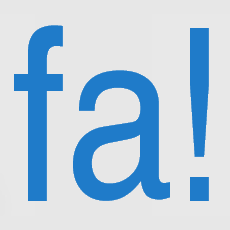Five new technologies for older adults — 2023 wrap-up (1 of 2)
AgeTech is a niche market no more. As we approach 2024 and the plethora of tech introductions from CES 2024, let’s reflect. This past year underscored the demographic changes that have brought an aging population — turning 65 at a rate of 10,000 per day — into the sight lines of investors, startups and health providers. The very recent and monumental investment that swept AI and media visibility underscored how AI could help older adults. And the shortage of labor in the care industries put a spotlight on the gaps in care that AI tech can help close. No doubt 2024 will reveal more investment and innovation in tech for older adults. This post is the first of two about 2023 notable offerings. All material is drawn from the websites of the companies.
Butlr Care. “Butlr, a leading provider of anonymous people-sensing technology, today announced the availability of Butlr Care. The solution offers a new option for senior living communities to improve safety and care while protecting privacy and simplifying daily life for residents and staff. By passively monitoring movement patterns via thermal sensors, Butlr Care can alert caregivers when seniors need assistance. Butlr also announced partnerships with leading solution providers that are deploying the technology.” Learn more.
CareYaya. “CareYaya is the fastest-growing health-tech startup in America, solving home care for those with elderly loved ones and medically vulnerable children. We’re disrupting the established, broken system of care. Our care marketplace connects clients with great, affordable care from pre-health college students. CareYaya employs student caregivers from top universities like the University of Michigan, Michigan State University, Harvard, Duke, and many others.” Learn more.
LifeGuard. “Lifeguard becomes your family’s eyes and ears — without any eyes or ears. Our proprietary Lookout System uses no cameras or listening devices, only discreet in-home smart sensors to help keep you safe. It learns your healthy lifestyle patterns, spots any inconsistencies that indicate a potential problem, and generates Wellness Insights to keep your Lifeguard RN and family informed.” Learn more.
NextStride. “Conditions such as Parkinson’s, Multiple Sclerosis, and Huntington’s can result in a slow degeneration of the neural pathways that the brainwaves rely on to communicate with the body. Damage to those pathways can also result from sudden head trauma, damage to the spinal cord, or a stroke. If your brain’s automatic signals cannot reliably and consistently reach your body, the ability to move as you have been used to is interrupted. Using specific visual and audio cues, NexStride allows the brain to switch from automatic commands to intention-based, or goal-oriented, commands.” Learn more.
Nomo Smart Care. “Nomo Smart Care helps support individuals who would prefer to stay in their homes rather than move into an assisted living facility. Nomo Smart Care’s unique technology tracks daily routines within the home and alerts caregivers when routines suddenly change, all without spying or invading their privacy. Unlike traditional medical alert systems, Nomo Smart Care’s key value to caregivers is its ability to recognize when specific events do or don’t occur, without the need for a camera in the home. Nomo Smart Care identifies deviations in routine, such as medicine cabinets not being opened, kitchen pantries left untouched or changes in sleep behavior and if needed, offers direct-to-911 data and voice connectivity.” Learn more.







